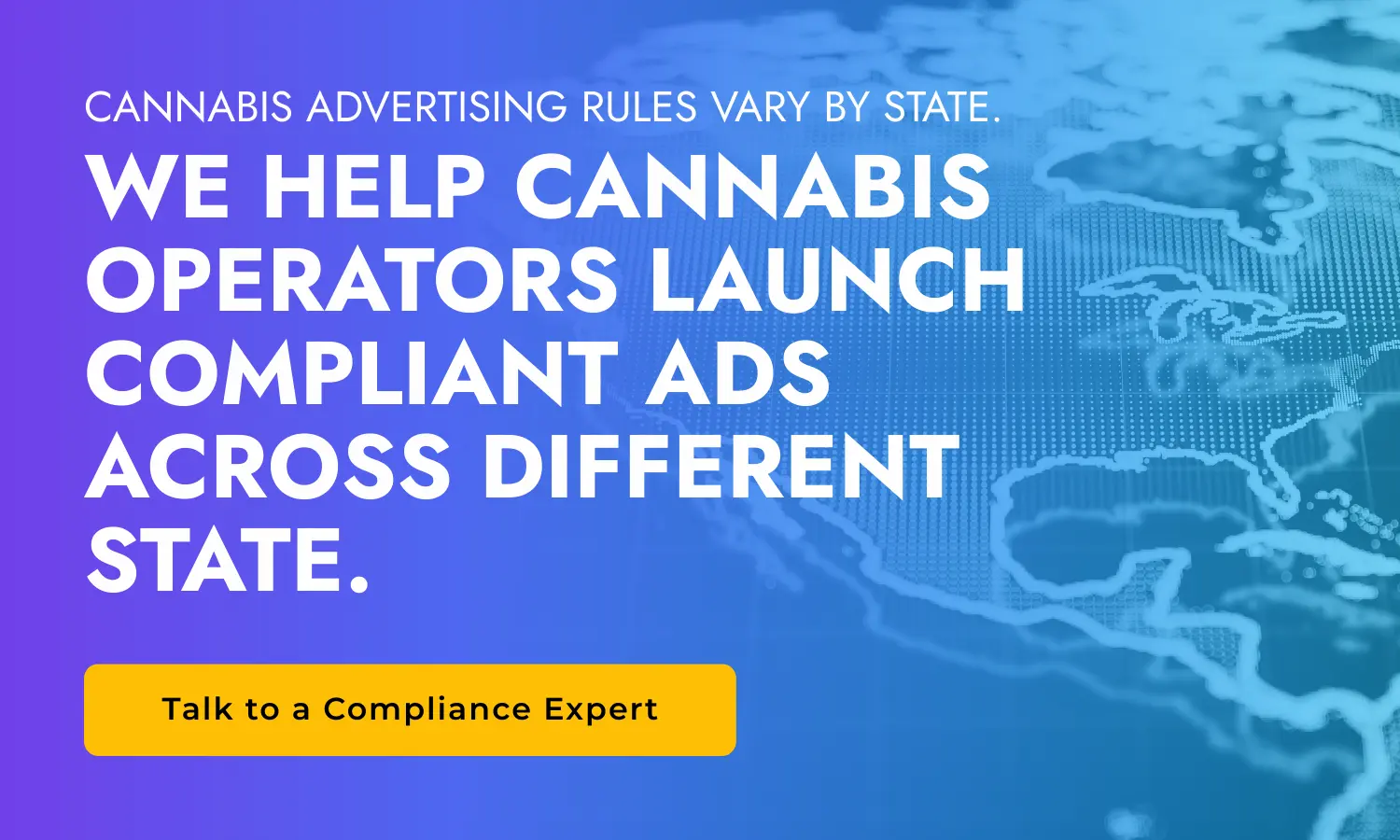Vermont State Advertising Regulations
Vermont’s medical and recreational cannabis regulations are listed below:
A registered dispensary may communicate with registered patients and caregivers through electronic means, U.S. mail or voice means, provided that written authorization for such communication has been received. This authorization may be withdrawn by the registered patient or caregiver at any time. Dispensaries shall develop the appropriate procedures and forms necessary for registered patients and caregivers to “opt in” and to “opt out” of such communications.
A registered dispensary shall not advertise through any means including electronic means or social media. Additionally, a registered dispensary shall not advertise any results of customer satisfaction surveys, their location of business, or any information that would identify them as a registered dispensary. Signage shall include only text and shall not contain pictures, logos, or symbols.
A registered dispensary shall Ensure delivery vehicles are discreet and do not display advertising, cannabis related insignia, or distinguishing features indicative of dispensary operations.







